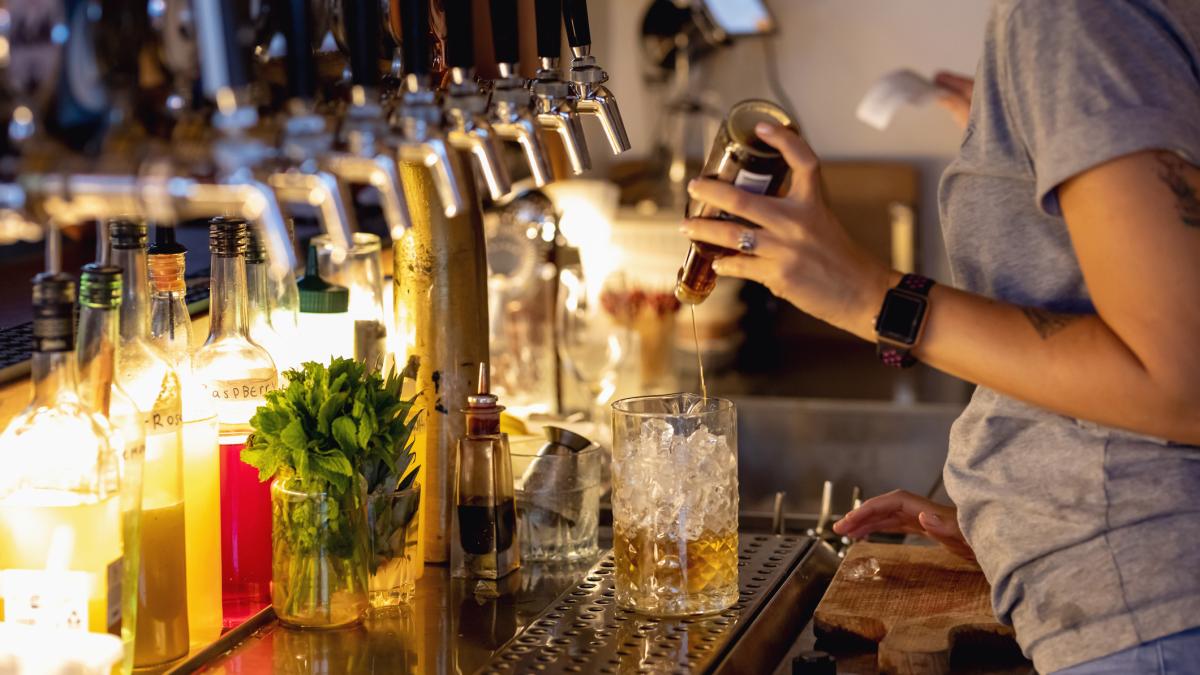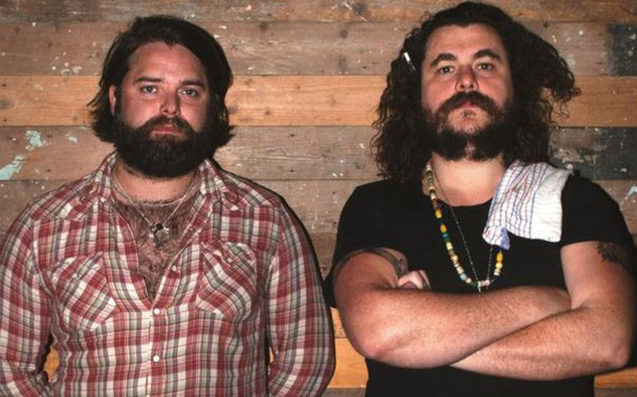
The Sydney hospitality scene has been my home for almost a decade, so when I read that viral interview with Jake Smyth and Kenny Graham of Mary’s Group, I was not at all surprised. That attitude is typical of the culture that runs through the hospo industry’s veins and it’s beyond fucked.
I’ve worked in a variety of settings, starting out working the bars at events, parties and festivals. I did this for about six months, mainly working for one company that specialised in boutique and bespoke cocktails for events and functions. Through this company I was introduced to a lot of big names in the hospo scene, and that’s how I was introduced to the owner of the bar I worked at for about two years.
On my trial shift, I was given a tinnie of beer and told to drink it. I opened it and had a few sips, thinking it was some kind of trap and I would get in trouble if I drank it. I was shown the venue, where different tools and drinks were kept, and then we walked towards the backroom.
When we were out of the customers’ sight, and in a CCTV blindspot, my manager asked me if I had finished the beer I’d been given. I hadn’t. And so he pulled out a beer bong and got me to skol the rest, like the classic frat boy tradition. All the other bartenders and some of the regulars cheered on as I was “initiated”. This was just the beginning.
So I got the job and started working three nights a week for $20 an hour, cash-in-hand. Every night was a gruelling slog and a debaucherous party.
Back then I was studying full-time at university while also working three nights a week at my venue. Very quickly this all caught up with me – my grades and attendance were shocking. I was tired all the time, never having any time for myself, and on my days off I could do nothing more than lay in bed and rest for two days. I was extremely depressed, demotivated, and my close relationships suffered.
Because I was working such long hours, including my studies, I was rarely able to see my friends. I exchanged my chosen friends for my workmates, and my regular customers. My relationship deteriorated to a point where I was rarely there for my partner, both physically and mentally.
Sometimes customers at the bar would wait in line for ages because all the bartenders were drinking shots in the back, or just on their phones. Every night we would be drinking from about 6pm ’til close at 2am and then there was still staffies to account for. There were nights that I would finish at 2am, but wouldn’t get home ’til 6 or 7am the next day.
These weren’t compulsory, but when I stopped attending for more than one after work sesh, there was a definite disconnect between myself and the other workers.
Cocaine was rife within the hospo world, too. The microwave in the breakroom was often used to heat up plates, and my breaks were often interrupted by my co-workers getting on. Everyone was doing it.
I watched one co-worker slowly fall victim to addiction. He would work all night, finish his shift and run up a tab that would be worth more than his wages, as well as buying bags he couldn’t afford. He ended up falling behind on his rent as a result of keeping up with the bar owner’s habit, that they could afford as a business owner (but we could not). Eventually he was fired, due to consistently being drunk, high or just late as a result of being hungover.
So when I saw the Jake and Kenny of Mary’s Group write-up, the first thing that stood out to me was the statement of “work life balance”. Jake called it one of the “most dangerous terms young people have been introduced to”. (Editor’s note: in an interview with PEDESTRIAN.TV, Smyth maintained that he supported workers disconnecting from work on their days off and said his comments were taken out of context.)
After my own personal experience of trying to balance work and university while maintaining relationships, I could not believe that Jake Smyth’s advice is to devote yourself entirely to work.
Sure, that makes sense for a middle-aged man who’s opened a successful business, but how does that apply to me, as a young student, working a job to pay my way through uni?
If I took his advice (which admittedly I since have), I wouldn’t work another day in hospo for the rest of my life, and I imagine that many of his employees would do the same to pursue their dreams. A lot of people have ambitions that go beyond the hospo scene.
In the podcast, Jake Smyth said workers were obsessed with a false idea of what constituted ‘work life balance’, and he states that his idea of work life balance was to find a job you loved, and that was the balance. To me that sounds like another example of the capitalist fantasy of devoting yourself to your work.
So if work and life become one, where does the rest of life fit in? Socialising? Get fucked with your co-workers after work. Romance? Pick up girls behind the bar.
There was a level of hypocrisy in Kenny’s statement as well, when he said that hospo staff wake up at midday, work at 4pm and spend nights off getting hammered.

Kenny Graham and Jake Smyth. Credit: Supplied.
Anybody who knows these guys is aware of the reputation they have and openly promote being party animals. So how can they condemn their staff for following their behaviour?
A lot of shit needs to change in the local hospo culture, but this ain’t it, my dudes.
This story has been published under an anonymous byline to protect the identity of the author, who still works in hospitality. The author has not worked in a Mary’s Group venue.



